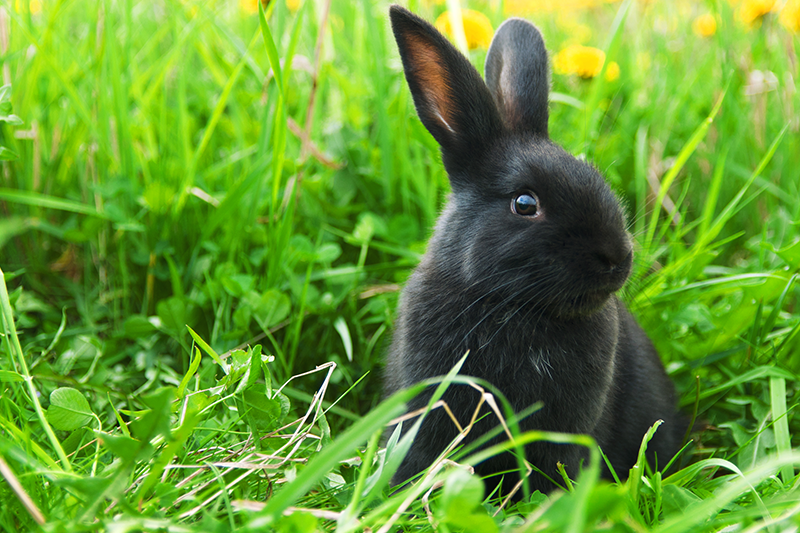Not sure what to feed your baby rabbit or guinea pig? Check out our easy guide.
Growing rabbits and guinea pigs have different dietary requirements to mature animals.
Selecting the right hay
Hay should be fresh and available at all times. There are many different types of hay and they all have a purpose – some examples include Timothy, Oaten and Ryegrass hay. It is important to know what to feed, and when to feed your pet. Rough, high-fibre hay is great for maintaining teeth and encourages natural behaviour like foraging and chewing. High-fibre hay is also critical for a healthy and functional digestive system. Lucerne or Clover hays are best avoided as they are too high in protein and calcium.
Lucerne is perfect for guinea pigs as it is higher in protein and calcium than Fescue. Young guinea pigs also benefit from a Lucerne diet; however, they need additional vitamin C to prevent scurvy. Lucerne is also more suitable for growing animals, pregnant or lactating mothers and those animals with a medical requirement for higher protein.
What should they be eating?
75%t of their diet should be hay. Quality hay is the linchpin of a good diet and general health in rabbits and guinea pigs.
20% of the diet should be quality pellets. They are important in every stage of a pet rabbit or guinea pig’s life.
5% should be made up of treats, including fresh greens.
The simple diet checklist
A herbivore’s ‘five-a-day’ diet is as follows:
- Quality hay
- Quality pellets
- Treats
- Fresh greens
- Fresh water
Treat time
Little herbivores love variety. Try mixing up the diet with vegetables, but avoid iceberg lettuce in large quantities. Dark, leafy greens are the best and if you’re looking for a healthy treat, visit your local Petbarn store or order some online.
Not too much
Overfeeding pellets in both rabbits and guinea pigs can lead to obesity and other medical conditions.
Water is key
One of the most important elements of caring for any pet is providing it with fresh, clean water at all times. Clean your water containers, food bowls and hutches regularly and spray with a disinfectant.
Your local Petbarn has a fantastic range of foods and accessories to help keep your little herbivore healthy and happy. And if you have any questions, don’t forget to ask your friendly Petbarn team members for advice and information.

